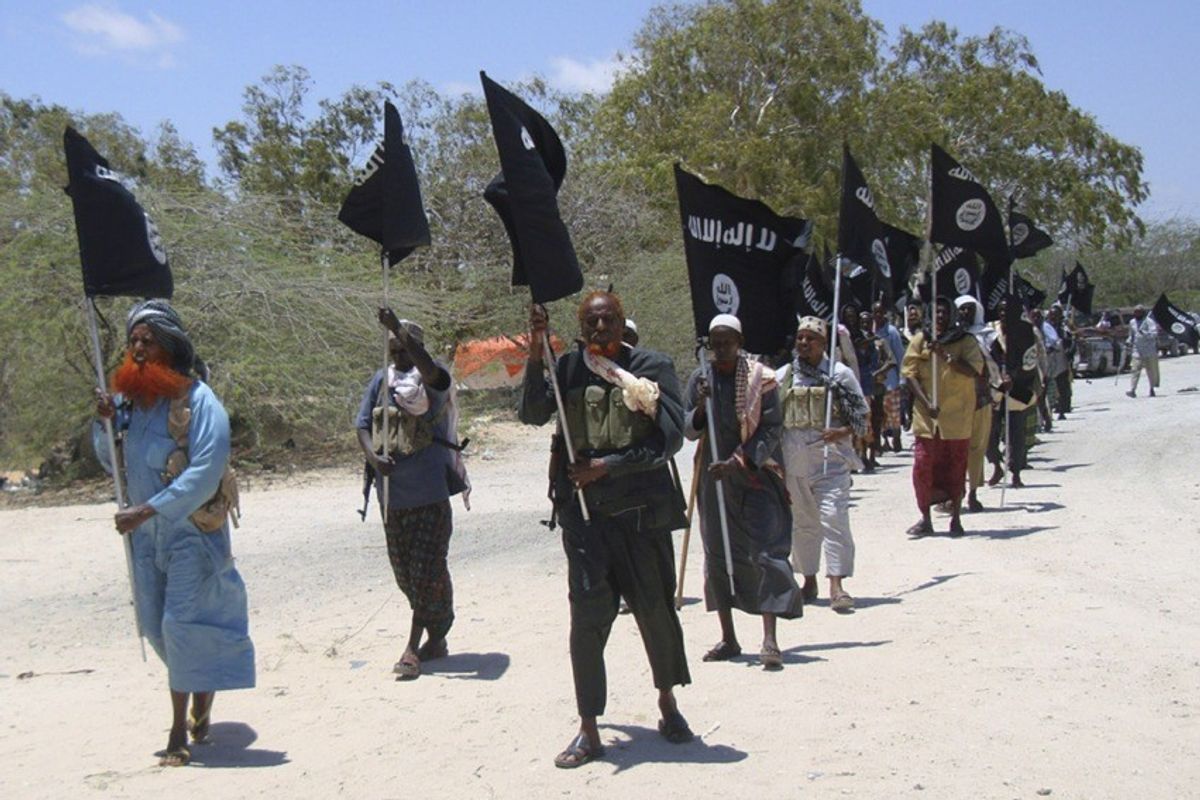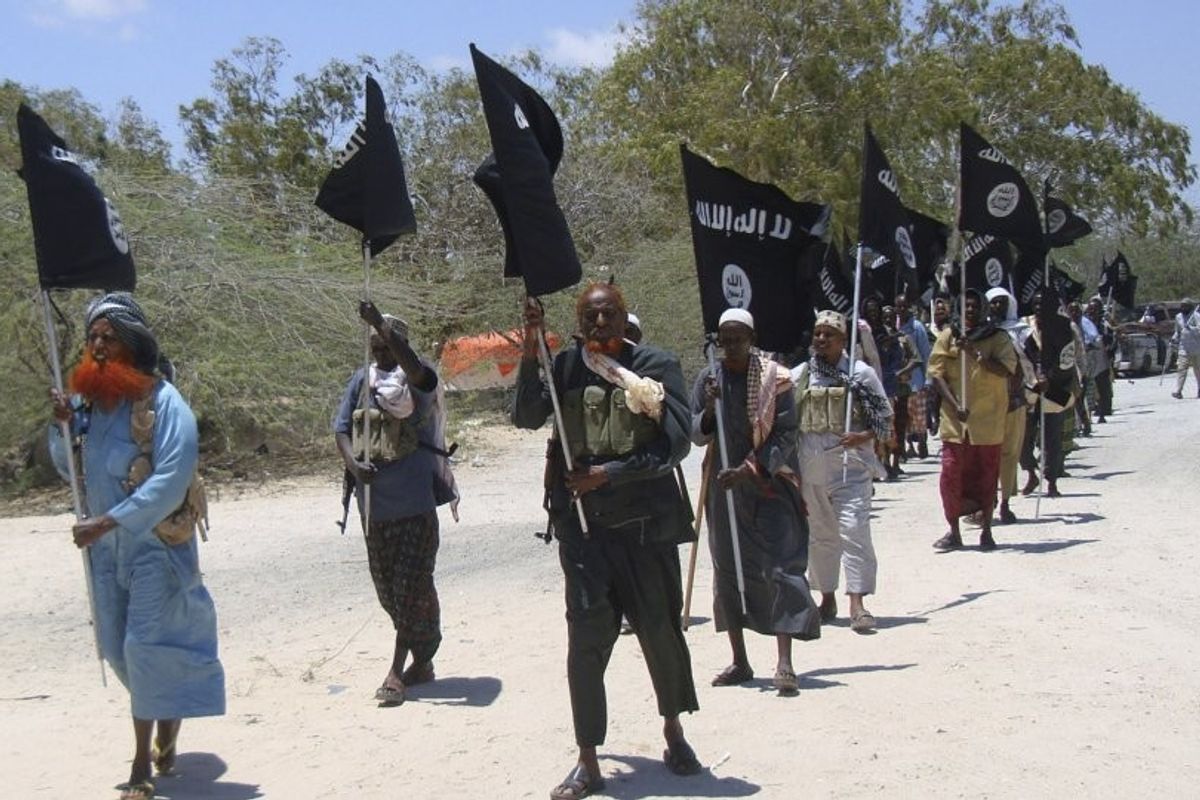SUBSCRIBER+REPORTING — After a long wait and amid a rapidly deteriorating security situation, Haiti may soon be getting an international security force. Officials in Kenya, which is supplying 1,000 police officers for the mission, have pledged to go forward despite a series of challenges from the Kenyan legal system.
The Haiti mission is aimed at stemming a staggering level of gang violence in the western hemisphere’s poorest nation. It’s a deployment both desperately needed and deeply controversial - inside Haiti and beyond - and last week, Kenya’s President William Ruto said the police officers are traveling to Haiti, on what he has called “a mission for humanity.”
It’s also a mission that has met with a variety of objections – criticized for being too small for the job at hand, not involving members from countries in the region, and risking a repeat of past international deployments that have hurt the Haitian people more than they’ve helped.
That said, there is no arguing the need.
The United Nations estimates that 80 percent of the capital, Port-au-Prince, is now controlled by gangs. Thousands of Haitian civilians have been killed or wounded in the last year, and hundreds of thousands more have been driven from their homes.
When the U.N. Security Council approved an international security force for Haiti last year, the country's Foreign Minister Jean Victor Geneus greeted the news as “a glimmer of hope for the people that have for too long been suffering.”
“Haiti needs more than “a glimmer of hope,” former U.S. Ambassador to Venezuela and Deputy Assistant Secretary of State Patrick Duddy told The Cipher Brief.
Duddy, who has been involved in Haiti for decades, has cast the current situation as both a humanitarian disaster and a national security issue for the U.S., given the prospect of a failed state on the US’s doorstep. He and others have argued that if the crisis persists, a new wave of Haitian refugees will head for the U.S.
“I think that a deployment of a thousand police from a nation willing to help is a good start, but it's only a start because the situation is very, very dire,” Duddy said.
In a Friday editorial in The Miami Herald, Eduardo Gamarra, a professor of politics and international relations at Florida International University, said “Haiti has descended into a state of chaos that can no longer be ignored…It is no exaggeration to state that gangs rule Haiti.”
The Kenyan Security Force: How it Came to This
The July 2021 assassination of Haiti’s Prime Minister Jovenel Moïse is widely seen as the moment that ushered in a spate of gang violence that has ravaged the country. Haiti first requested the international force more than a year ago, as the gangs gained footholds, overwhelming the national police force in several parts of the country.
Last July, Kenya’s government volunteered to lead the force; other countries, including the U.S., had refused to take part. The U.S. said that while it supported the deployment of a “multinational rapid action force,” it wanted no U.S. boots on the ground.
The U.N. Security Council approved the mission in October in a near-unanimous vote (only Russia and China abstained); the Biden administration pledged $200 million to finance the mission.
The deployment was challenged in Kenya by critics who said the decision had been reached without sufficient debate or the authorization of key government agencies. A High Court in Kenya blocked the plan in late January, saying it lacked a clear agreement with Haiti on rules of engagement for the force.
President Ruto and his aides now say the court’s concerns are being resolved. Abraham Korir Sing’Oei, the principal secretary at the Ministry of Foreign Affairs, told The New York Times Sunday that Kenya and Haiti were finalizing an agreement to dispatch the force while a legal appeal continues. Sing’Oei said “the deployment does not have to await the conclusion of this appeal.”
Haiti is a “Living Nightmare”
A recent U.N. report makes clear just how urgent the need is and paints a stark picture of what the Kenyan force will face.
More than 2,300 people were killed, injured or kidnapped in Haiti between October and December 2023, a nearly 10% increase over the previous quarter, according to the report. The number of killings spiked to more than 1,600 during the period; by comparison, roughly 1,400 Ukrainian civilians were killed during the same three-month period of the Russian war.
The U.N. report also found that gang members had routinely used rape as a means of terrorizing the population, and that nearly 700 people were kidnapped between October and December, an increase of nearly 20% compared with the previous quarter.
“No social category has been spared: from street vendors and farmers…to high-level professionals, including doctors and civil servants,” the report said.
Overall, 8,400 people were killed, injured or kidnapped in Haiti last year, more than double the number reported in 2022. 310,000 people have been left homeless in Haiti because of the gang violence, including some 170,000 children, according to UNICEF.
When U.N. Secretary General Antonio Guterres visited Haiti last year, he was blunt: “The Haitian people,” he said, “are trapped in a living nightmare.”
The Force - and its Critics
The security force won’t be a traditional “blue helmet” U.N. peacekeeping operation; while the U.N. authorized the mission, it will be overseen by the Kenyan government with two core mandates: the protection of critical infrastructure including hospitals, schools, ports and airports; and security “operations” carried out in tandem with Haiti’s National Police.
“We need at a minimum to see a force move in there to work with the Haitian police to bring as much order as possible into the capital city, especially around the port and the airport where supplies come in,” Ambassador Duddy said. He emphasized the need for strict rules of engagement. “The rescue force should know exactly how they should interact or react to various provocations - because my guess is there will be provocations.”
Critics have raised several concerns about the force, beginning with the Kenyan police itself.
Human rights groups have accused the Kenyan police of killing more than 100 people last year and firing on anti-government protesters. Others have noted that Kenya has had little success policing criminal groups and terrorist groups in its own country.
Others echoed Ambassador Duddy’s point - that a larger force will be needed to dent the power of Haiti’s entrenched and well-armed gangs, some of which are armed with high-powered weaponry smuggled in from the United States.
Then there is the fraught history of peacekeeping missions to Haiti. The most recent U.N. mission, established two decades ago, was ultimately tainted by sexual misconduct allegations involving more than 100 U.N. peacekeepers, and a link between sewage from a U.N. camp and a cholera outbreak which killed nearly 10,000 people.
Some leaders of non-governmental organizations in Haiti say the new U.N.-backed force will suffer because of the weakness of the Haitian government, and because of ties between the gangs and some powerful politicians. Several senior Haitian politicians have been sanctioned over links to the gangs, raising questions of whether they can be trusted to work with the Kenyan force.
“We are not opposed to an international force,” said Pierre Esperance, Executive Director of Haiti’s National Human Rights Defense Network. “But the problem we have in Haiti is that we have a dysfunctional government. And many top political figures have links to the gangs.”
Last year Esperance wrote an editorial in The New York Times under the heading “Haiti doesn’t need more guns. It needs a new government.”
“The real challenge is how will an international force be perceived and received?” Ambassador Duddy said. “There have been some who have been very critical of the idea of bringing in an intervention force or a rescue mission that is essentially military in nature.”
U.N. diplomats, including the U.S. Ambassador to the U.N. Linda Thomas-Greenfield, have stressed that the original resolution to send force includes human rights protections and oversight mechanisms to prevent abuses. And Duddy and others say that for all the criticisms and concerns, the Kenyan force would be an important first step.
“I don't see how the Haitian government or police can restore order without help, and I think the help has to come from some sort of an international rescue mission,” he said. “The current situation appears to me to be about as bad as any I can remember.”
It's not just for the President anymore. Are you getting your daily national security briefing? Subscriber+Members have exclusive access to the Open Source Collection Daily Brief, keeping you up to date on global events impacting national security. It pays to be a Subscriber+Member.
Read more expert-driven national security insights, perspective and analysis in The Cipher Brief











